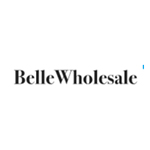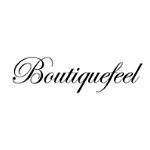Beauty
What Happens to your Skin when you Don’t Shower?
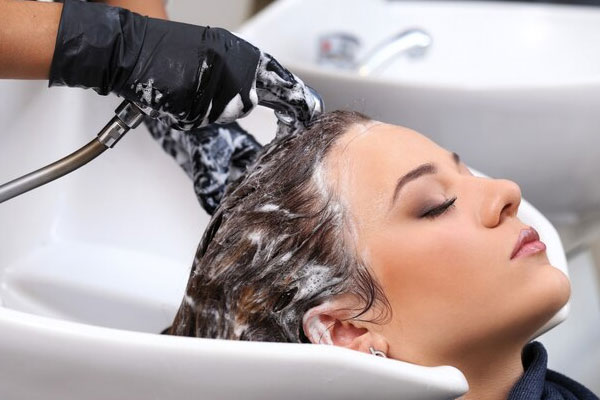
What Happens to your Skin when you Don’t Shower
Exploring the Non-Bathing Trend / What Happens to your Skin when you Don’t Shower?
The Impact on Your Skin When Showering Takes a Backseat:
Amidst a trend that advocates for showering less to conserve water and energy, questions arise regarding the effects of non-bathing on our skin. As celebrities like Jennifer Aniston and Mila Kunis openly embrace the practice, dermatologists shed light on whether this new approach to personal hygiene is universally beneficial.
In this comprehensive exploration, we delve into the environmental motivations behind non-bathing, seek expert opinions from dermatologists, and unravel the diverse effects on different skin types.
Environmental Considerations and Celebrities Embracing Non-Bathing
As the world grapples with environmental concerns, including water conservation and energy efficiency, the non-bathing trend gains traction. High-profile celebrities such as Jennifer Aniston, Julia Roberts, and Charlize Theron have openly shared their commitment to showering less for the sake of environmental sustainability.
The movement aligns with the ethos of reducing water usage and the energy required to heat water for bathing.
Dermatologist’s Perspective on Non-Bathing
To understand the impact of non-bathing on the skin, we turn to dermatologist Dr. Stefanie Derendorf, based in Munich. Dr. Derendorf emphasizes the need to tailor personal hygiene practices to individual skin types and different circumstances.
While acknowledging the environmental benefits of non-bathing, she provides insights into the effects on dry and oily skin types.
Tailoring Non-Bathing to Skin Types
Dr. Derendorf explains that the frequency of bathing should be personalized, considering factors like skin type, seasonal changes, and individual needs. For those with dry skin, reducing shower frequency may lead to improved skin appearance, as frequent washing can strip away essential fatty layers.
Conversely, individuals with oily skin might experience worsened conditions if they shower less frequently. The dermatologist cautions against a one-size-fits-all approach, highlighting the need for a nuanced understanding of individual skin types.
Non-Bathing and Skin Conditions
Addressing the impact of non-bathing on specific skin conditions, Dr. Derendorf notes that individuals with neurodermatitis, characterized by dry skin, may find relief through less frequent bathing.
She recommends therapeutic oil baths for neurodermatitis sufferers, emphasizing moderation in their usage.
Determining Skin Type and Hygiene Recommendations
Dr. Derendorf highlights the significance of understanding one’s skin type and offers insights into objective methods, such as hydrometry and sebumetry tests, to assess water and fat content.
She encourages individuals to gradually adjust their bathing routines, with recommendations for different age groups and skin areas.
Personal Hygiene Guidelines
Considering skin type and age, Dr. Derendorf advises against daily showers for children. For adults and young people, daily cleaning of areas rich in sebaceous and sweat glands is recommended using soap-free syndets.
The dermatologist addresses facial cleansing, hair washing, and emphasizes individualized care routines.
Water-Saving Alternatives
In response to the growing concern for water conservation, Dr. Derendorf discusses water-saving alternatives, including using a washcloth instead of showering.
She underscores the importance of non-aggressive soaps and pH-neutral products when opting for these alternatives.
Final Thoughts and Personal Hygiene Tips
In conclusion, the dermatologist suggests that individuals with healthy skin routines need not alter their practices. However, those facing skin issues should consider determining their skin type to choose suitable care products. Dr. Derendorf acknowledges the environmental benefits of non-bathing but encourages a balanced approach, advocating for personalized hygiene practices.
As the non-bathing trend gains momentum, it is evident that the impact on skin health is not universal. Dermatologists emphasize the need to consider individual skin types and circumstances, encouraging a balanced and personalized approach to personal hygiene. The exploration unveils the intersection of environmental consciousness, celebrity influence, and dermatological expertise in shaping evolving hygiene practices.
Beauty
Best Perfume Brands for Men – Best Perfume(s) for Men
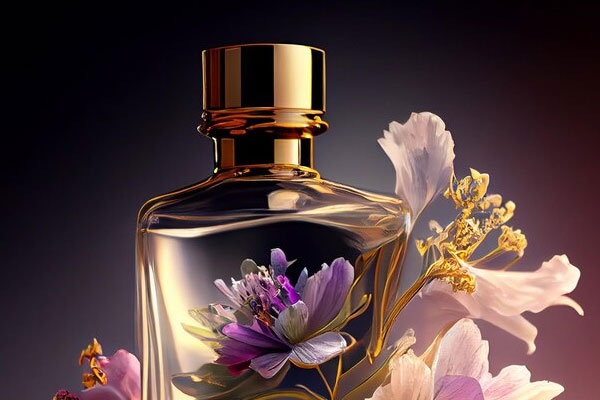
Best Perfume Brands for Men
Best Perfume Brands for Men : Exploring the Realm of Distinctive Fragrances
Welcome to the realm of men’s perfumes, where we venture beyond the well-known brands to discover fragrances that tell unique stories, encapsulated in each bottle. These perfumes are more than scents; they are experiences, offering a departure from the ordinary and a journey into unexplored olfactory territories.
For the discerning young man in search of novel fragrance experiences, here are five perfume brands that demand urgent exploration, each accompanied by its latest creation.
1. BDK Perfumes
Date of creation: 2016
Origin: France
Launched in 2016 by David Benedek, BDK Parfums is an independent creative perfumer’s house situated in the Palais Royal district in Paris. The brand’s creative process revolves around the meticulous selection of unique raw materials, drawing inspiration from the world of words and stories. All elements, from bottles to caps, labels, and boxes, are crafted entirely in France, showcasing the brand’s commitment to artisanal excellence.
The latest olfactory masterpiece, “Vanille Leather” from the “Exclusive Collection,” entices with top notes of pink berries, violet accord, and Indonesian patchouli. Base notes include Madagascar vanilla, oakwood, leather accord, iris, and resinoid benzoin, resulting in a captivating fragrance that embodies the perfect fusion of French tradition and olfactory modernity.
2. Maison Crivelli
Date of creation: 2018
Origin: France
Founded under the guidance of Thibaud Crivelli, Maison Crivelli stands out for its distinctive approach to luxury perfumery, embodying innovative creativity infused with modernity, contrast, and surprise. Fragrances are inspired by Thibaud’s travels and born from collaborations with renowned perfumers. The latest fragrance, “Oud Maracuja,” takes us on a sensory adventure, starting with a passion fruit tasting in the heart of isolated oud wood forests.
The remarkable contrast between the brightness of the fruit and the depth of the wood characterizes this exotic, woody, and fruity fragrance. Quality ingredients like saffron, Turkish rose absolute, leather, akigalawood, and others form an exceptional vegan blend.
3. Maison Francis Kurkjian
Date of creation: 2009
Origin: France
Francis Kurkdjian, known for creating the legendary perfume “Le Male” by Jean Paul Gaultier at the age of 24, founded Maison Francis Kurkdjian in collaboration with Marc Chaya in 2009. The Maison’s perfume collection blends the tradition of French perfumery with a contemporary vision, incorporating enchanting codes of purity, sophistication, timelessness, and audacity.
The latest creation, “Aqua Media Cologne Forte,” evokes water and light through vibrant notes of bergamot, verbena, sweet fennel, and a woody hedione-musk accord, representing balance in motion in a bottle that seamlessly combines elegance and modernity.
4. P. Frapin & Cie
Date of creation: 2004
Origin: France
P.Frapin & Cie, a French perfume brand under Maison Frapin, draws its origins from the tradition and excellence of the Frapin family, renowned producers of cognac since the 13th century. Positioned at the intersection of luxury and craftsmanship, the brand embodies French refinement by merging the art of perfumery with the prestigious heritage of cognac making. Each fragrance captures the essence of the Charentais terroir in elegant, timeless bottles.
The latest perfume is inspired by the unique process of the “Good Heating” of Cognac, a distillation that forges its character. With notes of twigs, dried roots, shavings, oak logs, Davana Oil, Black Pepper, Black Plum, Patchouli, Cedarwood, Benzoin, and Vetiver, it creates a warm and protective ambiance, offering an intense and enveloping olfactory experience.
5. Serge Lutens
Date of creation: 2000
Origin: France
Serge Lutens, a pioneer in the world of unisex perfumes, launched his own line in 2000 after collaborating with prestigious houses. His creations are known for their timeless and daring character. Serge Lutens believes in applying perfume directly to the skin, reflected in the aesthetics of table bottles he offers.
The latest perfume, “Écrin de Fumée,” combines notes of tobacco, cocoa, and rum. A poetic and sensual ode to the scent of tobacco, it pays tribute to individuals burning life at both ends. Belonging to the “Collection Noire,” this eau de parfum has been available since last April.
Conclusion – Best Perfume(s) for Men
In conclusion, these perfume brands offer a gateway to a world of olfactory delights that go beyond conventional boundaries. Each fragrance is a masterpiece, telling a unique story and offering a distinctive experience. As you embark on the journey of exploring these perfumes, you’ll discover the artistry, creativity, and dedication that define these independent and innovative fragrance houses.
The olfactory landscape awaits your exploration, inviting you to embrace the extraordinary and redefine your perception of smelling good. Share your thoughts and views in the comments below regarding best perfume brands for men – best perfume(s) for men.
Beauty
How to Identify Fake Perfumes and Cosmetic Products

How to Identify Fake Perfumes
How to Identify Fake Perfumes and Cosmetic Products : Let’s take a look
In a world where counterfeit goods and fake products thrive, distinguishing between genuine and imitation items has become increasingly challenging. This issue is particularly pronounced in the cosmetics and perfumes industry, where the allure of well-known brands attracts not only genuine consumers but also cunning counterfeiters.
With the proliferation of online marketplaces, the problem has escalated, making it crucial for consumers to learn how to recognize fake cosmetics and perfumes.
In this comprehensive guide, we will delve into the importance of using authentic products, the risks associated with counterfeit items, and practical steps to identify and avoid fake cosmetics and perfumes.
The Importance of Using Authentic Products:
Before delving into the ways to recognize fake cosmetics and perfumes, it’s essential to understand why using genuine products is crucial. While fake products may offer a cheaper alternative, knowingly purchasing counterfeit items is illegal. Legal ramifications aside, the primary concern lies in the uncertainty surrounding the ingredients used in counterfeit products.
Genuine cosmetics and perfumes from reputable brands undergo rigorous testing and approval processes to ensure consumer safety. These tests verify the authenticity of ingredients, providing consumers with confidence in the product they use. In contrast, fake products lack these guarantees, posing potential risks to the user’s skin and overall health.
Additionally, the testing of cosmetic products, especially in terms of animal cruelty, has become a significant ethical consideration for many consumers. Genuine cosmetic brands adhere to regulations and ethical standards, ensuring products are cruelty-free. By choosing authentic products, consumers contribute to the promotion of humane practices in the industry. Therefore, the quest for genuine products extends beyond legality to ethical and health considerations.
Identifying Fake Cosmetics and Perfumes:
Beware of Deals That Seem Too Good to Be True:
Deals that appear excessively cheap should raise a red flag. Most reputable cosmetic products maintain fixed prices, and significant discounts may indicate counterfeit products. Vigilance is crucial when encountering deals that deviate from the standard pricing.
Verify the Existence of “New” Products:
When encountering new products from favorite brands, it’s advisable to verify their existence. Counterfeiters may create inventive imitations of non-existent products, prompting consumers to exercise caution and verify the legitimacy of recently launched items.
Inspect Packaging Carefully:
Authentic cosmetic brands implement protective measures to counteract counterfeiting. Factory seals on packaging are common, and consumers should scrutinize them for any signs of tampering. Broken seals indicate potential alterations to the product, warranting further investigation.
Check Logos and Packaging Consistency:
Counterfeiters often attempt to evade legal consequences by slightly altering logos or packaging. Authentic products maintain consistency in logos and packaging details. Consumers should compare received products with online images to ensure accuracy.
Contact the Seller for Clarification:
If uncertainties persist, reaching out to the seller is a prudent step. Trusted online stores or department stores should readily respond to inquiries. When purchasing from individual sellers on online marketplaces, requesting a receipt or proof of purchase provides an additional layer of security.
Consider Language Discrepancies:
Some authentic cosmetic products may be sold at lower prices in different countries. Savvy traders import such products, offering consumers the chance to purchase at a reduced cost. While the packaging may feature a different language, transparency about this aspect ensures informed consumer choices.
Read Seller Reviews:
Prior to making a purchase, reading reviews about the seller can offer valuable insights. Consumers who have shared their experiences provide a firsthand account of the seller’s credibility. A high number of negative reviews, particularly regarding authenticity concerns, should prompt caution.
Request Receipts or Proof of Purchase:
When dealing with individual sellers, obtaining a receipt or proof of purchase enhances security. Genuine sellers should be willing to provide documentation that substantiates the authenticity of the product.
Conclusion:
Recognizing fake cosmetics and perfumes is a crucial skill in today’s market saturated with counterfeit goods. The importance of using authentic products extends beyond legal obligations to encompass health, ethics, and overall consumer safety. By understanding the risks associated with fake products and implementing practical steps to identify them, consumers can make informed choices that prioritize their well-being and ethical considerations.
Whether navigating online marketplaces or traditional stores, vigilance, research, and adherence to ethical standards contribute to a positive consumer experience. In the quest for genuine cosmetics and perfumes, consumers empower themselves to make choices aligned with both legal and ethical principles.
Beauty
Is Expensive Skincare Better? Costly Face Cream vs Cheap One
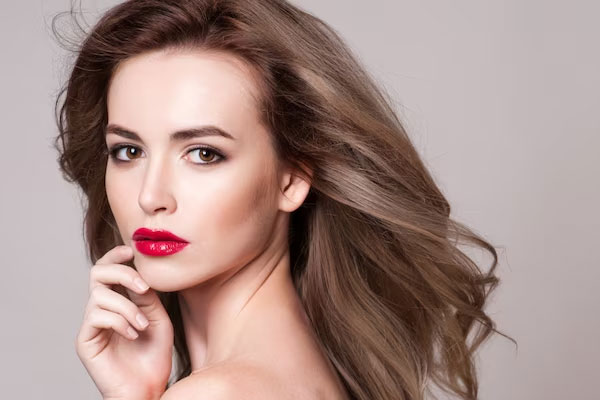
Is Expensive Skincare Better?
Do you the think that Is Expensive Skincare Better? Let’s explore the Value of Skincare
When it comes to skincare, the choices are vast, ranging from budget-friendly drugstore brands to luxurious high-end options. Often, consumers find themselves standing in front of shelves, contemplating whether an expensive day cream is truly superior to its more affordable counterpart.
In this discussion, we’ll delve into the factors that influence the price of skincare products and whether a higher cost guarantees better quality.
Understanding the Cost of Skincare:
The price of skincare products doesn’t solely reflect the cost of ingredients. In the realm of cosmetics, prominent brands allocate a significant portion of their budget to marketing. These brands invest heavily in advertisements, celebrity endorsements, and widespread visibility through various media channels. On the contrary, smaller brands may lack such extensive marketing resources.
Quality Perception:
One perspective suggests that smaller brands focus more on delivering a quality product, relying on positive word-of-mouth from satisfied customers. For them, a subpar product could severely impact sales. On the flip side, well-established brands may leverage their marketing prowess to compensate for potentially lower product quality.
Their elaborate packaging and effective advertising campaigns can mask any shortcomings.
Brand Reputation and Quality Assurance:
Reputable brands often have a vested interest in maintaining a high-quality standard. Their global reputation is on the line, and a product failure could be a significant blow to their business. Consequently, these brands are motivated to invest not only in marketing but also in extensive research to ensure their products meet customer expectations.
Personalized Skincare Choices:
The choice of skincare products is highly individualistic. There’s no one-size-fits-all solution, considering the diverse skincare needs of consumers. Whether you’re seeking an anti-wrinkle cream or aiming to reduce under-eye bags, there’s a plethora of products catering to specific concerns. It’s crucial to identify your unique requirements and experiment with different products to find what works best for you.
Factors Beyond Price:
Efficiency is just one aspect; other factors like production methods and testing practices are equally important. Many consumers prioritize cruelty-free products, avoiding those tested on animals. Certifications and logos indicating cruelty-free status provide assurance.
Additionally, the distinction between natural and chemical ingredients plays a role. Some individuals may opt for natural or organic versions, often pricier due to the intricacies of production.
Navigating the Skincare Market:
Finding the right skincare products involves navigating through a multitude of options. While advertisements and endorsements provide insights, it’s crucial not to solely rely on them. Consumer reviews and personal experiences shared online can offer valuable perspectives.
However, it’s essential to ensure that these reviews are unbiased and not influenced by brand endorsements.
Budget Considerations:
Skincare doesn’t have to break the bank. Regardless of your budget, there’s a diverse market offering products that cater to different financial constraints. It’s essential to strike a balance between cost and effectiveness, considering your financial capabilities while aiming for products that meet your skincare needs.
Conclusion:
In the vast landscape of skincare, the debate between expensive and affordable products persists. While big brands may invest heavily in marketing, smaller brands focus on delivering quality. Personal preferences, ethical considerations, and individual skin needs play pivotal roles in selecting the right products.
By exploring reviews, understanding ingredients, and being mindful of brand practices, consumers can make informed choices without overspending. The key is to find products that align with your skincare goals, budget, and ethical values.
-

 Travel9 months ago
Travel9 months agoBest Spinning Rod for Bass 2024
-
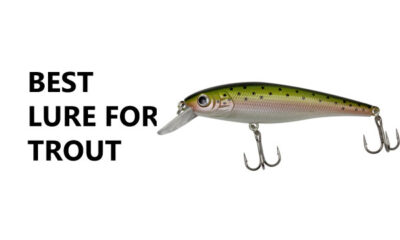
 Technology9 months ago
Technology9 months agoBest Lure for Trout 2024
-

 Travel9 months ago
Travel9 months agoBest Hunting and Fishing Clothing 2024
-

 Travel9 months ago
Travel9 months agoBest Robot Vacuum Cleaners 2024
-
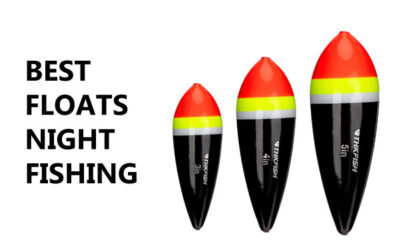
 Technology9 months ago
Technology9 months agoBest Floats for Night Fishing
-

 News6 months ago
News6 months agoValentine’s Deals
-
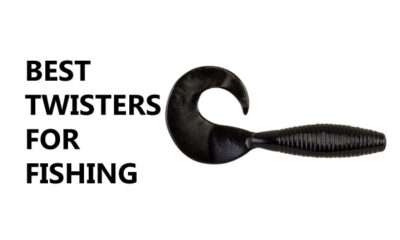
 Technology9 months ago
Technology9 months agoBest Twisters for Fishing 2024
-

 Travel9 months ago
Travel9 months agoBest Spinning Fishing Reels for Bass 2024










